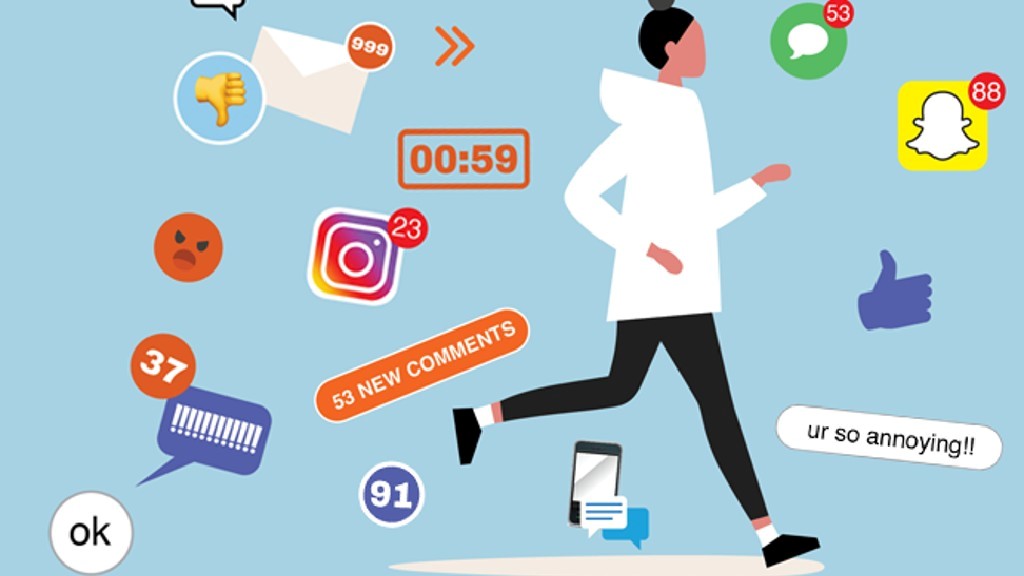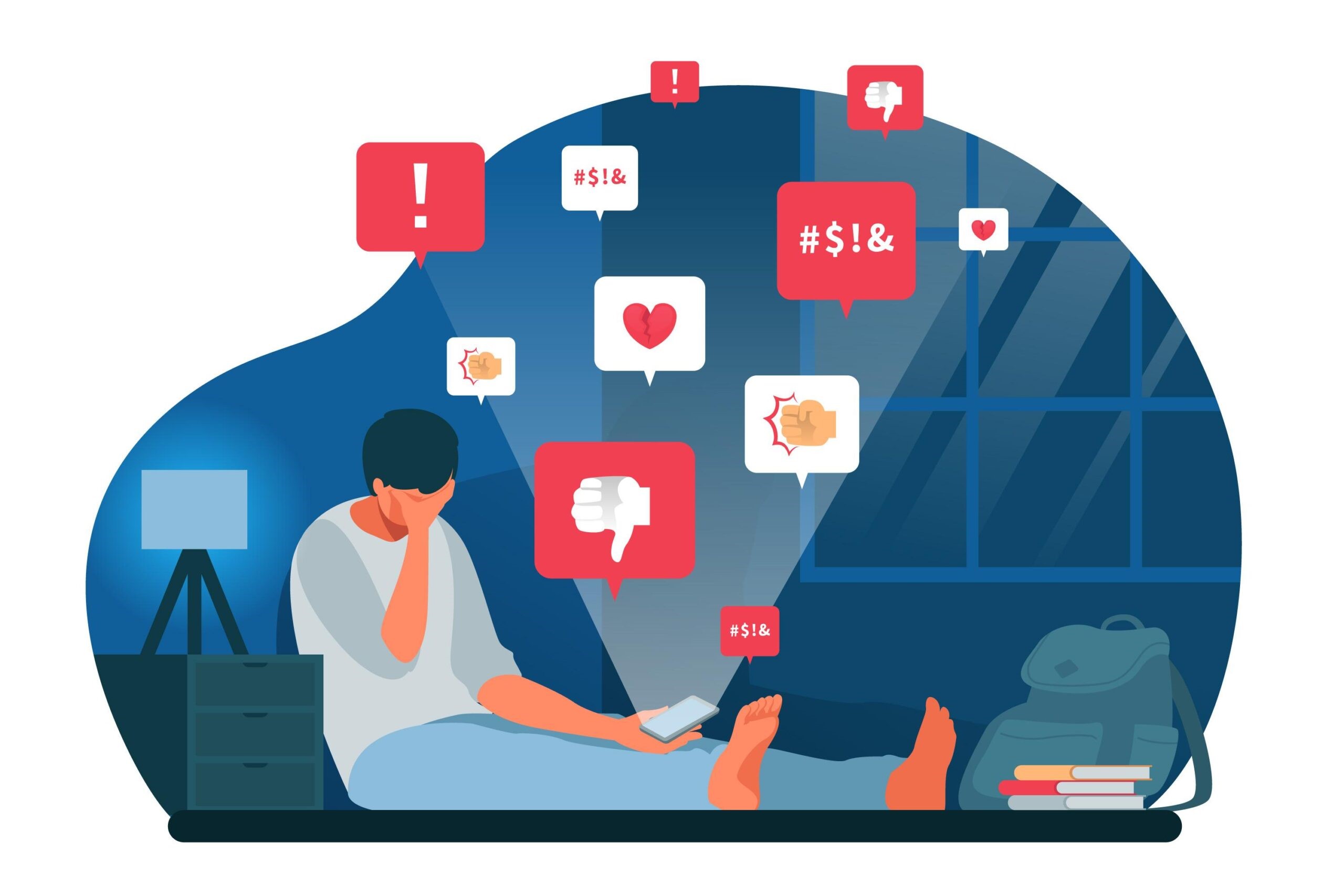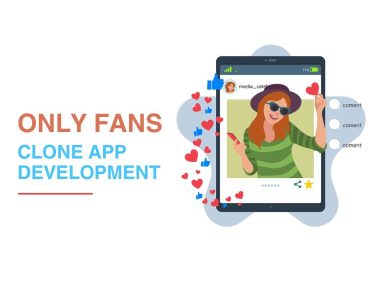In an era where social media has become an integral part of daily life, its impact on mental health is a topic of growing concern. Platforms like Facebook, Instagram, Twitter, and TikTok have revolutionized the way we communicate, share information, and perceive the world around us. However, the benefits of social media come with potential downsides, particularly concerning mental health. This article delves into the latest findings on the impact of social media on mental health, providing an informative overview of this critical issue.
The Ubiquity of Social Media
Social media usage has skyrocketed over the past decade. According to the Global Digital Report 2023, there are over 4.9 billion social media users worldwide, accounting for more than 60% of the global population. The average user spends approximately 2.5 hours per day on social media platforms. This widespread usage underscores the importance of understanding how these platforms affect mental health.
Positive Impacts on Mental Health
1. Enhanced Social Connectivity
One of the most significant benefits of social media is its ability to connect people across vast distances. For individuals who feel isolated or live in remote areas, social media can provide a sense of community and belonging. It allows users to maintain relationships with family and friends, fostering social support networks that are crucial for mental well-being.
2. Access to Mental Health Resources
Social media platforms have become valuable resources for mental health information and support. Numerous organizations and professionals use these platforms to disseminate information on mental health conditions, coping strategies, and available treatments. Online support groups and communities offer a space for individuals to share their experiences and receive peer support, which can be incredibly beneficial for those struggling with mental health issues.
3. Raising Awareness and Reducing Stigma
Social media has played a pivotal role in raising awareness about mental health issues and reducing stigma. Campaigns like #BellLetsTalk and #MentalHealthAwareness have garnered widespread attention, encouraging open discussions about mental health. This increased visibility has helped normalize conversations about mental health, making it easier for individuals to seek help.

Negative Impacts on Mental Health
1. Social Comparison and Low Self-Esteem
Despite its benefits, social media can also have detrimental effects on mental health. One of the most well-documented issues is social comparison. Users often compare their lives to the curated, idealized portrayals they see on social media. This constant comparison can lead to feelings of inadequacy, low self-esteem, and depression. Studies have shown that individuals who frequently engage in social comparison on social media report higher levels of anxiety and depressive symptoms.
2. Cyberbullying and Harassment
Cyberbullying is another significant concern associated with social media. The anonymity provided by these platforms can embolden individuals to engage in harmful behaviors, such as harassment, bullying, and spreading false information. Victims of cyberbullying often experience severe emotional distress, leading to anxiety, depression, and in extreme cases, suicidal ideation.
3. Fear of Missing Out (FOMO)
The Fear of Missing Out (FOMO) is a psychological phenomenon exacerbated by social media. Constant exposure to posts about events, activities, and experiences can create a sense of exclusion and anxiety. Individuals may feel pressured to participate in social activities or maintain a certain lifestyle to fit in, leading to stress and mental exhaustion.
4. Sleep Disruption
Excessive social media use, particularly before bedtime, can disrupt sleep patterns. The blue light emitted by screens interferes with the production of melatonin, a hormone that regulates sleep. Poor sleep quality is closely linked to various mental health issues, including anxiety and depression. Moreover, the habit of checking social media notifications during the night can further exacerbate sleep disturbances.
Latest Research Findings
Recent studies have provided deeper insights into the complex relationship between social media and mental health.
1. The Role of Usage Patterns
A study published in the Journal of Social and Clinical Psychology in 2022 found that the impact of social media on mental health is highly dependent on usage patterns. Passive use, such as scrolling through feeds without interacting, was associated with higher levels of depression and anxiety. In contrast, active use, such as engaging in meaningful interactions and creating content, was linked to positive mental health outcomes.
2. Individual Differences
Research has also highlighted the importance of individual differences in moderating the effects of social media on mental health. Factors such as age, personality traits, and pre-existing mental health conditions play a crucial role. For instance, adolescents and young adults are more vulnerable to the negative effects of social media, while individuals with high self-esteem and strong social support networks are less likely to be adversely affected.
3. The Impact of Specific Platforms
Not all social media platforms have the same impact on mental health. A 2023 study by the Royal Society for Public Health in the UK examined the effects of different platforms on young people’s mental health. Instagram and Snapchat were found to have the most negative effects, primarily due to their emphasis on image-based content and social comparison. In contrast, platforms like Twitter and Reddit, which focus more on information sharing and discussion, had a more neutral or even positive impact.
Mitigating the Negative Effects
Understanding the potential negative impacts of social media on mental health is the first step toward mitigating them. Here are some strategies to promote healthier social media use:
1. Set Boundaries
Establishing clear boundaries for social media use can help prevent overuse and its associated negative effects. This can include setting specific times for checking social media, limiting usage to certain hours of the day, and avoiding social media before bedtime.
2. Curate Your Feed
Being mindful of the content you consume can significantly impact your mental health. Unfollow or mute accounts that trigger negative emotions or social comparison. Instead, follow accounts that promote positivity, mental health awareness, and supportive communities.
3. Engage Actively
Rather than passively scrolling through feeds, engage actively with content. Comment, share, and create meaningful posts. Active engagement can foster a sense of connection and reduce feelings of isolation.
4. Seek Professional Help
If social media use is significantly impacting your mental health, consider seeking professional help. Therapists and counselors can provide strategies to manage social media use and address underlying mental health issues.
Conclusion
The impact of social media on mental health is a multifaceted issue with both positive and negative aspects. While social media can enhance social connectivity, provide access to mental health resources, and raise awareness, it can also lead to social comparison, cyberbullying, FOMO, and sleep disruption. Understanding the nuances of social media’s impact on mental health is crucial for developing strategies to maximize its benefits while minimizing its drawbacks. By adopting mindful usage patterns and seeking professional help when needed, individuals can navigate the digital landscape in a way that supports their mental well-being.




